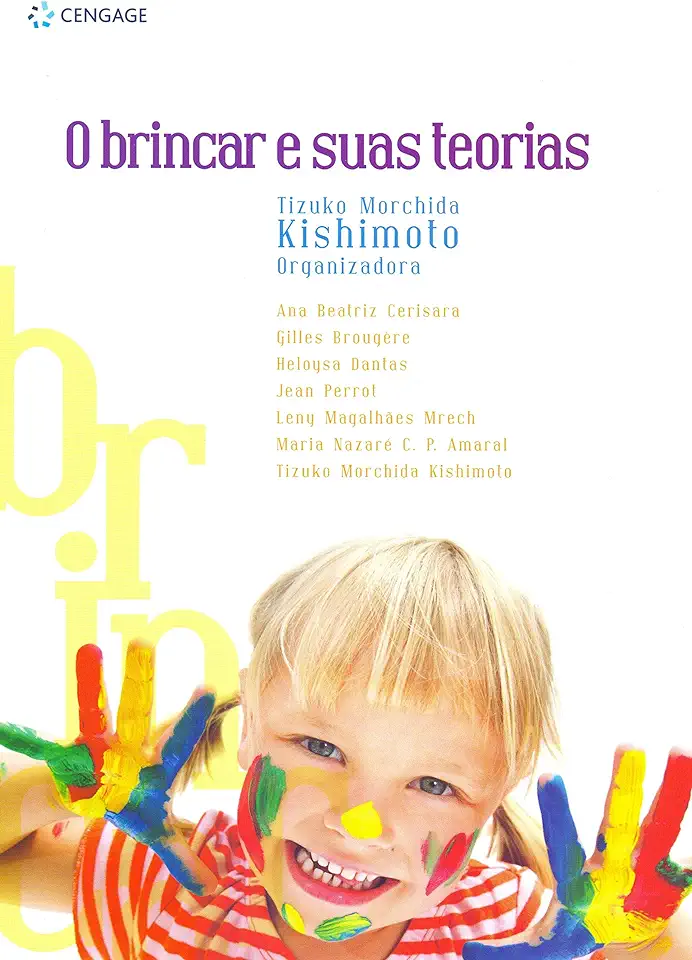
Play and Its Theories - Tizuko Morchida Kishimoto
Play and Its Theories: A Comprehensive Exploration of the Nature and Significance of Play
Introduction: Unveiling the Enchanting World of Play
In the realm of human experience, play stands as a captivating phenomenon that has intrigued scholars, educators, and parents alike. From the innocent laughter of children frolicking in the park to the intense concentration of adults engaged in board games or sports, play seems to transcend age, culture, and circumstance. In her groundbreaking book, "Play and Its Theories," Tizuko Morchida Kishimoto delves into the multifaceted nature of play, presenting a comprehensive exploration of its theories, implications, and significance in human development.
Play: A Multifaceted Phenomenon
Kishimoto begins by establishing a clear understanding of play, defining it as "an activity that is intrinsically motivated, freely chosen, pleasurable, and non-literal." This broad definition encompasses a wide range of activities, from imaginative role-playing to physical games and sports. Kishimoto emphasizes the importance of distinguishing play from other forms of behavior, such as work, learning, and ritual, highlighting the unique characteristics that make play a distinct and essential part of human life.
Theories of Play: Unveiling the Underlying Mechanisms
At the heart of Kishimoto's book lies a thorough examination of various theories that attempt to explain the nature and purpose of play. She presents a comprehensive overview of these theories, ranging from classical perspectives to contemporary approaches, providing readers with a deep understanding of the intellectual landscape surrounding play.
Classical Theories: Exploring the Roots of Play
Kishimoto begins by exploring classical theories of play, including the surplus energy theory, the catharsis theory, and the recapitulation theory. These theories, rooted in the works of early thinkers such as Herbert Spencer, Sigmund Freud, and Karl Groos, offer foundational insights into the biological and psychological underpinnings of play.
Contemporary Theories: Delving into the Complexities of Play
Moving beyond classical perspectives, Kishimoto delves into contemporary theories of play that offer more nuanced and multifaceted explanations. These theories, such as the cognitive-developmental theory, the sociocultural theory, and the ecological theory, emphasize the role of play in cognitive development, social interaction, and environmental adaptation.
The Significance of Play: Unlocking Human Potential
Throughout the book, Kishimoto emphasizes the profound significance of play in human development. She presents compelling evidence demonstrating the positive impact of play on various aspects of human life, including physical health, cognitive development, social skills, and emotional well-being.
Physical Health: Nurturing a Healthy Body and Mind
Kishimoto highlights the role of play in promoting physical health and well-being. She discusses how play encourages physical activity, enhances motor skills, and reduces stress, contributing to overall health and vitality.
Cognitive Development: Fostering Intellectual Growth
Play serves as a powerful catalyst for cognitive development, Kishimoto argues. She explains how play stimulates creativity, problem-solving skills, and imagination, laying the foundation for lifelong learning and intellectual growth.
Social Skills: Building Bridges of Connection
Kishimoto emphasizes the importance of play in fostering social skills and emotional development. She explores how play provides opportunities for children to learn cooperation, empathy, and communication, essential skills for navigating the complexities of human relationships.
Conclusion: Embracing the Power of Play
In her concluding remarks, Kishimoto passionately advocates for the recognition and preservation of play in our lives. She urges readers to embrace the transformative power of play, both for children and adults, and to create environments that nurture and encourage this essential human activity.
Call to Action: Join the Movement to Celebrate Play
"Play and Its Theories" is a must-read for anyone interested in understanding the nature and significance of play. Kishimoto's comprehensive exploration of play theories, combined with her compelling arguments for the importance of play in human development, makes this book an invaluable resource for educators, parents, and anyone passionate about fostering a playful and fulfilling life. Join the movement to celebrate play and unlock the boundless potential it holds for human growth and well-being.